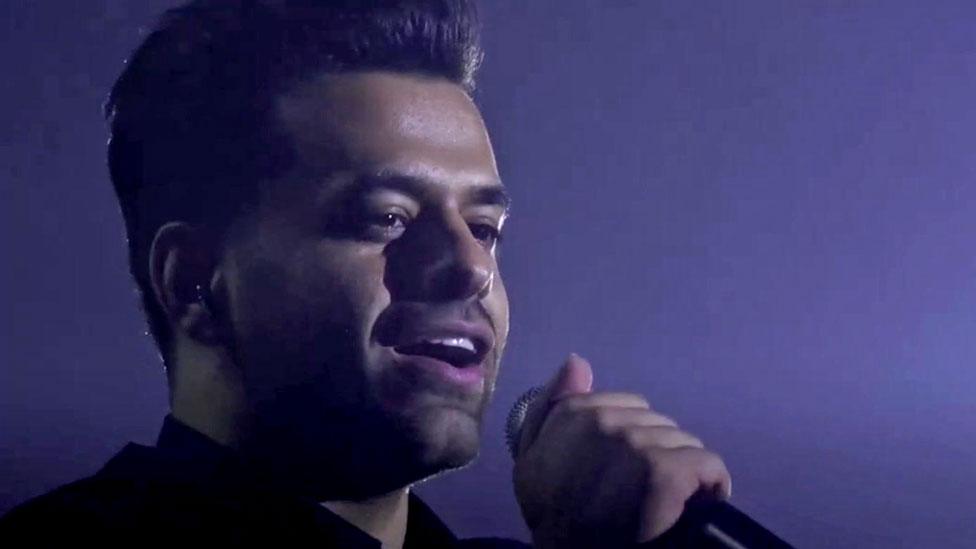Iran says it arrested CIA spies and sentenced some to death
- Published
Iran releases footage of seized "fuel-smuggling" tanker on Thursday
Iran says it has arrested 17 spies who it says were working for the CIA, and sentenced some of them to death.
The intelligence ministry said the suspects had been collecting information in the nuclear, military and other sectors.
US President Donald Trump has dismissed the Iranian allegations, saying they are "totally false".
Washington and Tehran are at loggerheads over Iran's nuclear programme and tensions have grown.
Mr Trump last year abandoned the international nuclear deal with the Iranians, and the US has imposed sweeping economic sanctions on them.
Allow X content?
This article contains content provided by X. We ask for your permission before anything is loaded, as they may be using cookies and other technologies. You may want to read X’s cookie policy, external and privacy policy, external before accepting. To view this content choose ‘accept and continue’.

In recent weeks, the two countries came close to military conflict in the Gulf.
Speaking shortly after the Iranian announced on the arrests, Mr Trump said: "It's getting harder for me to want to make a deal with Iran."
What do we know about the 'spying case'?
Iran says the spies who are alleged to work for the US Central Intelligence Agency were arrested over a 12-month period up until March this year.
The 17 were all Iranians working in "sensitive centres" in military and nuclear facilities and the private sector who had acted independently of each other, a top Iranian intelligence official told reporters.
He did not say how many had been sentenced to death or when the sentences had been handed down.
"Sentences for these spies have been issued, some of whom are to be put to death as 'corruptors on earth' [a charge punishable by death under Islamic rules in Iran]," the head of the intelligence ministry's espionage department was quoted as saying by the Iranian Students News Agency (ISNA).
On Sunday, Intelligence Minister Mahmoud Alavi announced a documentary on the arrests of "US-linked spies" would be aired on Iranian TV.
Why does the Strait of Hormuz matter?
The Iranian intelligence ministry also released a CD containing a trailer for the documentary, re-enactments of spy meetings and interviews with officials including Mr Alavi.
Some of the spies had fallen into a "visa trap" set up by the CIA for Iranians wanting to travel to the US, Mr Alavi said, adding: "Some were approached when they were applying for a visa, while others had visas from before and were pressured by the CIA in order to renew them."
Others had been enticed by offers of money, lucrative jobs and medical services, he said.
Iran's Press TV channel has aired a documentary about the cracking of a "CIA network".
Last month, Iran said it had dismantled a network linked to the CIA, but it is unclear whether Monday's announcement was related to the same case.

Iranian power struggle?
Analysis by Kasra Naji, BBC Persian
Many observers of the Iranian political scene view the latest Iranian claim with deep scepticism.
On Monday, Iran's intelligence ministry said it had broken up a spy ring connected to the CIA last month.
But confusingly it added that the 17 alleged spies had already been arrested last year.
Some believe that 17 is the sum total of all those arrested on suspicion of spying over many years. They are all Iranians.
According to one account from Iran's notorious Evin prison, there are many inmates there accused of spying for a range of countries.
But why the intelligence ministry is coming up with such a story now probably has more to do with its rivalry with the intelligence unit of the Revolutionary Guards than with new arrests.
Just two weeks ago Iranian state TV broadcast the last episode of a docu-drama that glorified the intelligence unit and portrayed the government of President Hassan Rouhani as ineffective and weak in the face of Western espionage.
Now, the intelligence ministry is hitting back with its own documentary in which it is claiming its own major successes in tackling espionage.
It seems rival intelligence agencies in Iran are engaged in a very public power struggle for everyone to see on state TV.

What's the background to the current crisis?
Tensions between Iran, the US and the UK remain high, after a series of incidents in the world's key shipping area, the Strait of Hormuz:
On Friday, Iran seized a UK-flagged oil tanker in the strategic waters. Tehran had previously warned it would retaliate after the UK captured an Iranian tanker off the coast of Gibraltar earlier this month
Mr Trump said last week the US Navy had destroyed an Iranian drone after it refused to back down, but Iran denied this
Last month, Iran shot down a US surveillance drone over the strait, accusing it of violating Iranian airspace. But the US military said the drone had been over international waters at the time, and condemned it as an unprovoked attack
The US has also blamed Iran for two separate attacks on oil tankers in the Gulf of Oman in May and June - allegations Tehran has denied
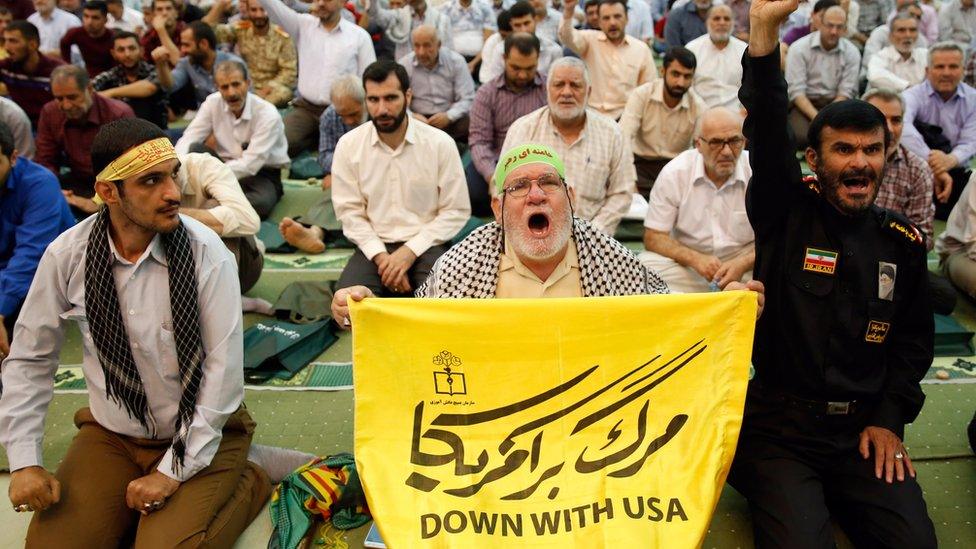
An anti-US placard at Muslim Friday prayers in Tehran
Tensions between the two nations have risen sharply since the US tightened sanctions it reimposed on Iran's oil sector after unilaterally withdrawing from a landmark 2015 nuclear deal.
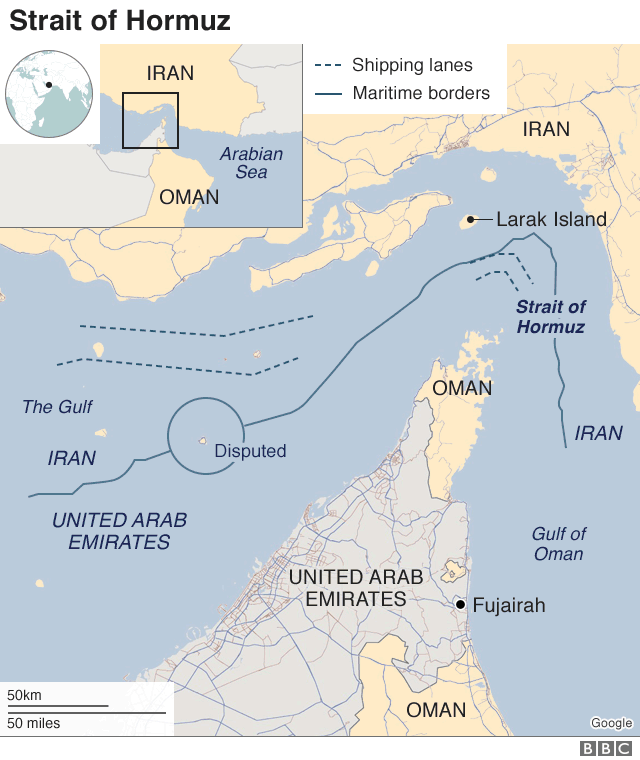

- Published22 July 2019
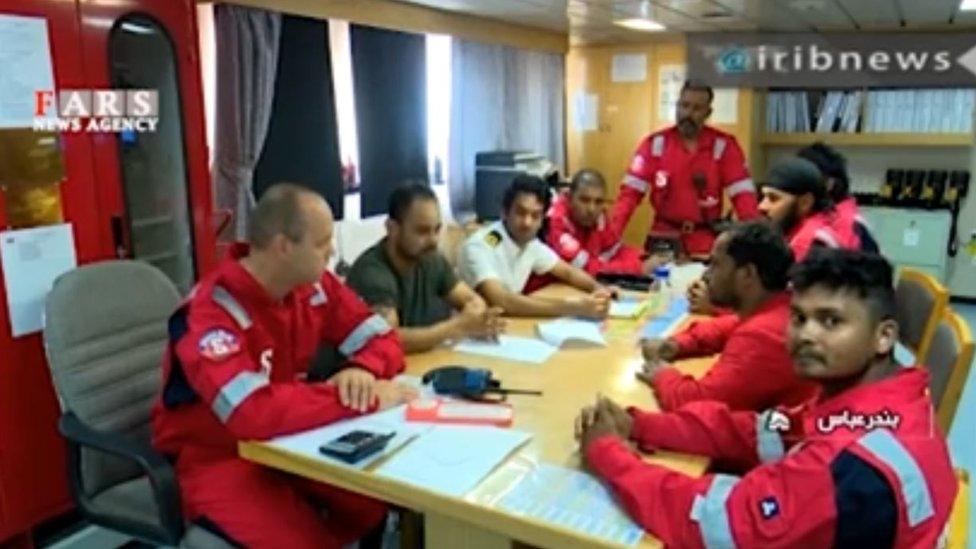
- Published19 July 2019
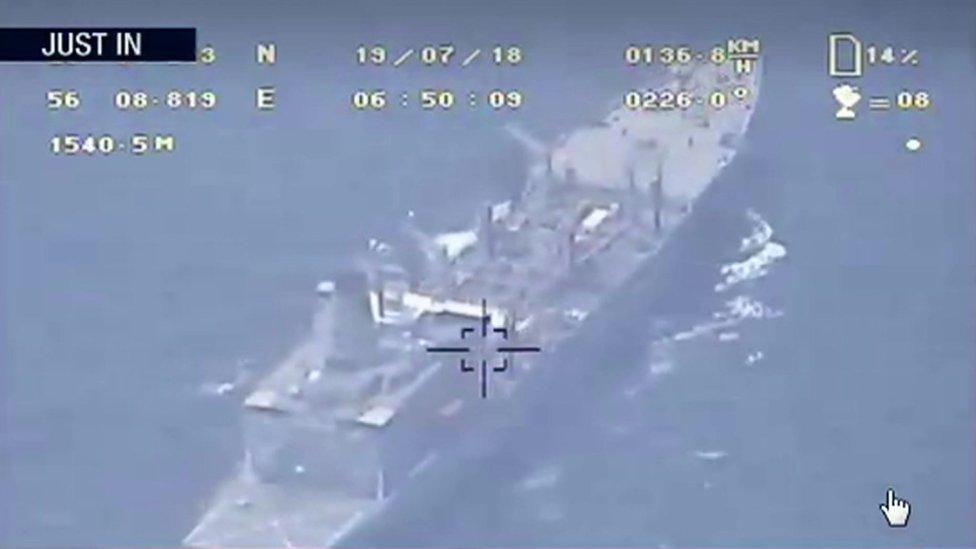
- Published14 July 2019
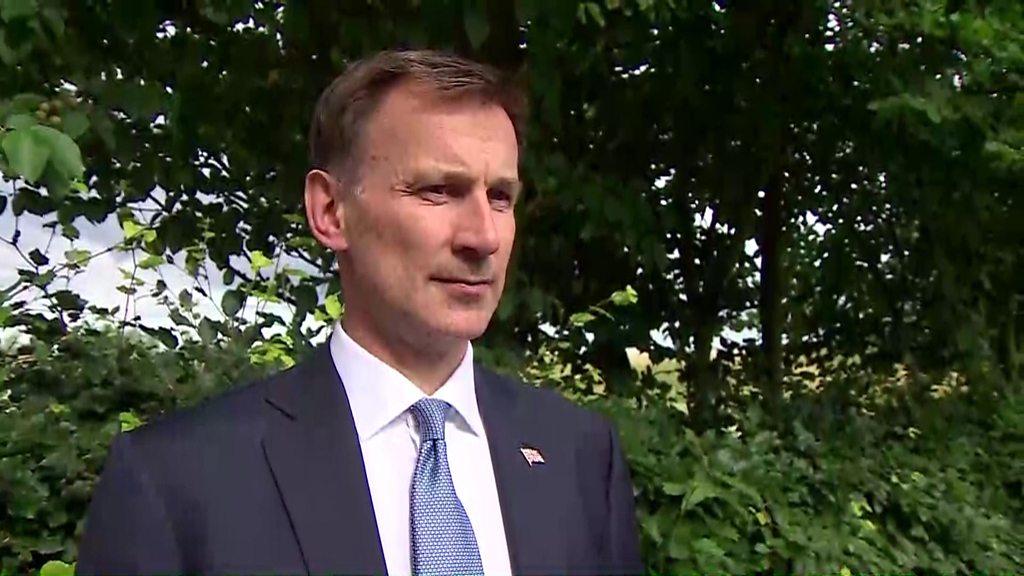
- Published12 July 2019
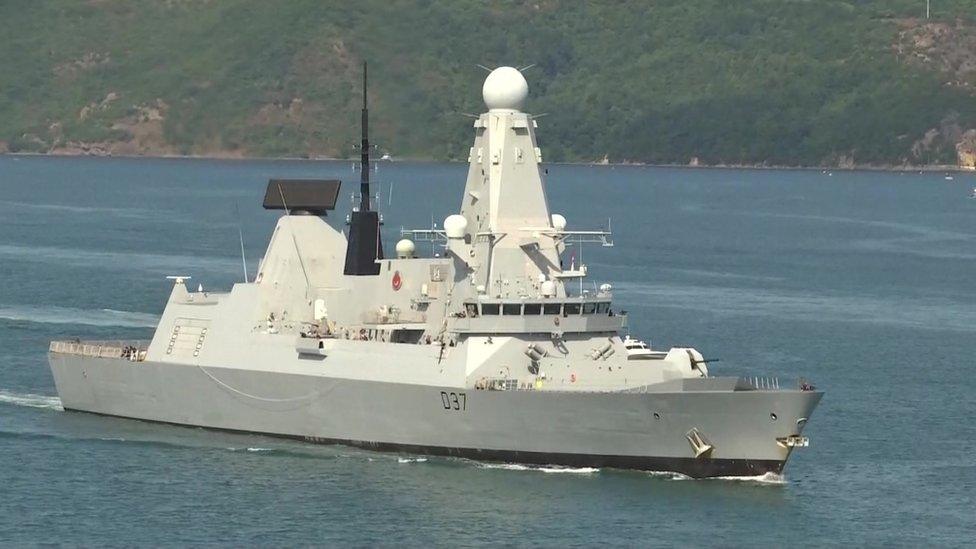
- Published11 July 2019
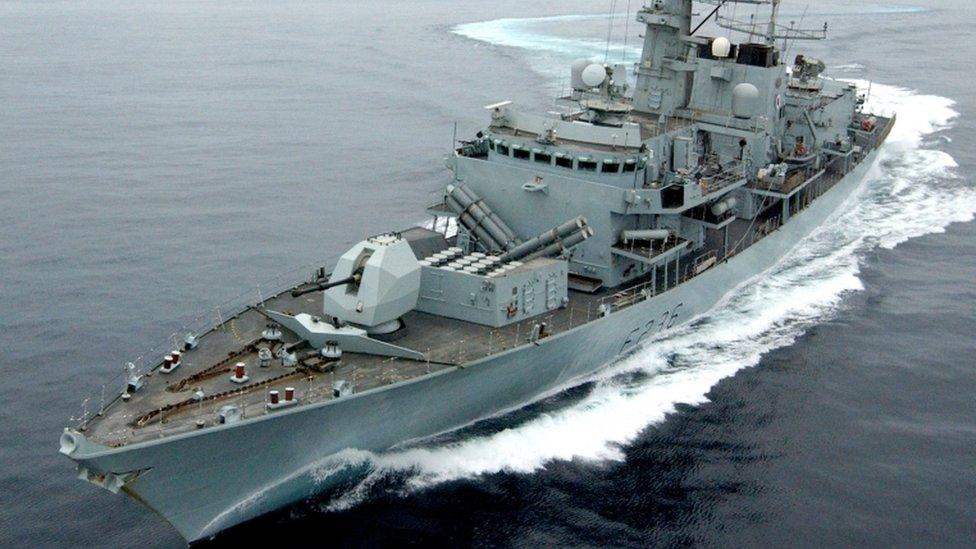
- Published14 July 2019
